- Home
- James Rollins
Bloodline: A Sigma Force Novel Page 5
Bloodline: A Sigma Force Novel Read online
Page 5
He prayed that silence didn’t cost lives.
Especially the president’s daughter and her unborn child.
4
July 1, 8:02 P.M. East Africa Time
Cal Madow Mountains, Somalia
The truck continued its slow crawl through the mist-shrouded forest.
Amanda Gant-Bennett rode in the back of the older-model Land Rover. Modified with an open top, it must have once served as a safari-touring vehicle. A massive grille protected the front end, and four large driving lights were mounted on the roof rack. She’d also noted the two winches—front and back—along with a shovel and ax secured to the fender, ready to help free the vehicle if it became bogged down or stuck.
From the terrain they traveled, she understood the necessity for such modifications. The road was little more than a muddy track through the dark jungle. Somalia suffered from an arid climate, but the rainy season—called gu, she’d overheard—had just ended. These highlands, bordering the Gulf of Aden, received most of that rain. And what didn’t fall here as precipitation remained as thick fog.
A jarring bump threw her high. Only her seat belt kept her from flying out of the truck. She had initially thought of doing just that, of leaping free and taking her chances out in the dark jungle. But seated beside her was a heavyset guard, armed and sweating, chewing khat, a local stimulant used by nearly everyone. A second, larger truck followed at their heels, making any chance of escape impossible.
And she ultimately knew that any attempt would put more than her own life at risk.
She pushed the lap strap of the seat belt lower, below the bulge of her belly and above her hip bones. She had to protect her child. The baby boy growing in her womb was more important than her own well-being. He was the reason she and her husband had risked this flight halfway around the world.
To keep you safe …
And now her baby had fallen into another set of hands, becoming a tool to generate a larger ransom by the pirates. She remembered the Brit’s hungry eyes on her belly as she was taken off the yacht. Here, life was a commodity to buy and sell, even the new life growing in her belly.
Oh, Mack, I need you.
She closed her eyes, her heart constricting with the last memory of her husband, the fear and love shining in Mack’s eyes. She shied away from the horror that followed, his severed head tossed upon the bed where they’d made such careful love only hours earlier. But she had no time to grieve for her husband.
She drew a long, steadying breath, taking in the damp and redolent smell of junipers and wild lavender of the dense forest. Though numb with grief and terror, she had to stay strong. In the South, it was unseemly to be caught sweating in public. On the campaign trail with her father, she had learned to maintain a placid and friendly exterior—even when screaming on the inside. Instead, it was all smiles, handshakes, and warm pats on the back. Even with your enemies … especially with your enemies.
So, she continued to cooperate with her captors. Jumping when they said jump, remaining always pliant and obedient. Still, all the while she watched. It was another lesson from her father, his words echoing in her head, explaining the best way to gain the upper hand.
Keep your eyes open and your mouth shut.
And that’s what she intended to do. So far, the pirates gave no indication they knew she was the president’s daughter. They’d not even questioned her yet. In fact, they’d barely said a word. A grunt here or there, a pantomimed instruction, a few terse orders. Mostly about drinking water.
We don’t want anything to happen to your baby.
The warning had come from the man seated in the passenger seat up front, the Brit with his thin mustache and impeccable attire. He remained the only consistent presence around her—though he’d ignored her most of the day, bent over a laptop computer attached to a satellite phone and GPS navigation unit.
She studied the back of his head, trying to figure him out, searching for a weakness. He tapped at his laptop and the screen changed to a topographic map. She feigned a kink in her back to stretch forward, trying to peek at the screen, to discern some idea of where she was and where they were going. But her guard yanked her back, his hand lingering over her left breast, which was tender and swollen. She slapped his fingers away, which only earned her a lascivious leer.
Defeated, she stared sullenly out at the misty forest.
Exhaustion and fear had stretched the day’s journey into a blur. At dawn, they’d made landfall at a small coastal town, a booming shantytown of bars, hotels, restaurants, and whorehouses, all serving the pirate trade. And from the number of expensive cars lining newly paved streets and half-constructed villas along the coast, it was plainly a lucrative and thriving business. To protect that industry, militiamen swerved through the streets in Mercedes SUVs, weapons bristling from rolled-down windows, making sure no one attempted to rescue any of their hostages.
And there must have been others like her.
As their boat had entered into port, she’d spotted numerous captured vessels: fishing trawlers, sailboats, a sleek yacht, and, anchored out in the deeper waters, an oil tanker. They’d only remained in town for less than an hour. There, she was handed over to another pirate gang and put on a hot, poorly ventilated Volkswagen bus out of town.
They drove half a day through lands hammered dry and flat by the merciless sun, the featureless landscape only broken by the occasional village of dry huts. They’d stopped only long enough for her to urinate, which was often, and humiliating each time. In the distance, mountains had loomed, seeming to grow higher with each passing mile.
Soon it became clear that the broken spine of rocky peaks was their destination. Upon reaching a village nestled in the scrubby foothills, the gang changed yet again, but not before a heated argument ensued, accompanied by a machismo display of shaken weapons and hurled threats. Finally, the Brit had facilitated the exchange of additional funds, bills banded in thick bundles, and Amanda found herself transferred into this old safari vehicle headed into the misty highlands.
A metallic snap drew her attention forward as the Brit closed his laptop with an air of finality. The reason became clear. A fiery glow appeared in the forest ahead, turning the wisps of fog into crimson trails threaded through the dark-green jungle. She smelled roasting meat and woodsmoke.
With a final haul of fifty yards, the Land Rover broke into an open glade in the jungle. Overhead, camouflage netting masked the camp below, giving the space a cavernous feel. A trio of small bonfires illuminated the hidden glade, along with a few electric lamps on poles.
The Land Rover pulled to the side and parked beside a handful of other vehicles. Additionally, a trio of camels, settled for the night, raised their heads to study the newcomers.
Likewise, Amanda, her eyes huge, tried to make sense of the camp. A neat circle of military-style tents surrounded a larger structure that looked like a picturesque gabled house, raised on pilings a yard off the ground. Across the front, a quaint wooden porch held a pair of deck chairs draped with mosquito netting. It looked like the jungle home of some African missionary. Furthering that impression, a large bloodred cross decorated one side of the building.
But as the Land Rover drew to a halt, the charming illusion evaporated. The house was actually a makeshift tent-cabin, with white tarpaulin stretched over a wooden pole-frame. And the crimson cross was less religious in appearance and more medical, like something borrowed from the American Red Cross. Only this cross had strange markings along its lengths, a twisting and coiling pattern that looked vaguely familiar.
Before she could understand what nagged her, the Brit pulled open her door and held out his hand to assist her.
“Home sweet home,” he said without any sarcasm in his voice.
She climbed out, unsteady, supporting her belly, and searched around. The steady chug of a diesel generator mocked the wild beating of her heart.
Men and women climbed out of tents to eye the new arrivals. Most of those faces
were black, African, but they didn’t have the starved and desperate look of the pirates. Even the weapons in view looked modern and well-kept.
What is going on here?
The other faces matched the Brit’s: white, European, professional. This last assessment came from the number of them wearing blue scrubs, like they’d freshly stepped out of a modern hospital for a smoke break.
The Brit led her through the circle of tents and toward the makeshift cabin, trailed by her guard. She climbed the steps to the small porch.
A spring-loaded door opened as they reached the cabin. A tall woman joined them, her blond hair trimmed into a short, athletic bob. She was young and fresh-faced, as if she just slipped out of a swimsuit ad and into surgical scrubs. Belying that image was the severity of her expression, especially her narrowed eyes. She took in everyone with a single steel-blue glance, barely noting Amanda. Her gaze settled on the Brit.
“Everything is ready, Dr. Blake.”
Amanda swung toward the Brit, surprised.
Doctor …?
The man noted her consternation. “I’m sorry. I never did properly introduce myself.” He held out his hand. “Dr. Edward Blake. Ob/gyn.”
She didn’t take his hand. Instead, she stared beyond the blonde’s shoulder and into the cabin. A hospital bed rested against the far wall. Beside it stood an IV pole and a bank of monitoring equipment. On the other side, a technician lubricated the transvaginal probe of an ultrasound unit.
Dr. Blake seemed to take no offense that Amanda had refused his hand. Instead, he rubbed his palms together.
“Okay, then, Mrs. Gant-Bennett. Why don’t we step inside?”
Amanda bit back her shock at the mention of her name.
He knows who I am …
Dr. Blake motioned with his arm. “We should check on how your baby boy is doing after the long journey. We can’t let anything happen to him, can we? He’s much too important.”
Amanda backed away in horror, her worst nightmare coming true.
Not only did they know who she was, they knew what she carried.
“No …”
Hands gripped her shoulders from behind and shoved her toward the open door.
Please, she prayed. Please someone help me.
5
July 1, 8:34 P.M. East Africa Time
Boosaaso, Somalia
“They’ll take good care of her,” Amur Mahdi promised. “At least for now.”
“Why do you say that?” Gray asked.
Seichan looked equally doubtful. She was dressed handsomely in jeans and a local guntiino, a bright length of crimson cloth, knotted at the shoulder and draped to the waist. The look must have worked, because Amur kept casting sidelong glances in her direction.
Next to her, Kowalski, outfitted in regular street clothes, simply swirled his tea, looking inattentive.
The four of them shared a table at a seaside restaurant overlooking the Somali port of Boosaaso. The open-air patio looked out onto the Gulf of Aden, the moonlit harbor crowded with massive ships bearing flags of various Arab states, along with the triangular sails of hundreds of smaller, wooden-keeled dhows.
Gray’s team had arrived at the Bender Qassim International Airport outside of Boosaaso forty minutes ago, traveling under the cover of UNHCR, the United Nations refugee agency. The relief group maintained a presence here in Puntland, the northeastern state of Somalia, where most of the country’s lawless pirates operated. Boosaaso was the main crossroads for this region and the best base of operations to begin gathering intelligence.
This introductory meeting was with Amur Mahdi—a former pirate turned CIA asset. He was an older man dressed in regional attire, which included loose trousers and a sarong-like kilt, known as a macawiis. He also wore a traditional embroidered cap atop his grizzled hair. The man had lost one leg at the knee several years back, an injury that sidelined him from his former profession as a pirate.
The sight of the prosthetic limb reminded Gray of his father, who’d been similarly disabled. A twinge of guilt flared at being half a world away from him, but he fought it down and concentrated on the conversation.
The meeting had been arranged by Director Crowe, channeled through various intelligence agencies. The goal of this meeting was to evaluate the current situation in Somalia. While word was still pending on the search for the raiders’ ship via satellite, Painter wanted eyes on the ground.
Meanwhile, a pair of Black Hawks idled at a U.S. Base to the north, in the neighboring tiny East African nation of Djibouti. SEAL Team Six, under the operational orders of Joint Special Operations Command, waited to be summoned once Amanda’s location was determined.
But where was the First Daughter?
Amur explained his lack of concern for the hostage’s safety. He didn’t know about the victim being the president’s daughter, only that she was an American woman. “For the most part, Somali pirates make decent hosts. Beatings are rare, but they do occur. Otherwise, they keep their guests protected and well-fed. It does no one any good if a hostage dies. In fact, the feeding and housing of captured crews help maintain the economy of Puntland.”
Gray knew how lucrative the piracy trade was. Last year alone, Somali pirates collected $160 million in ransom. And that was only the tip of the true cost of piracy in the region. The shipping industry and governments spent $7 billion during that same time, accruing additional expenses from insurance premiums, from heightened security, even rescue missions, like the recent one that secured the safe return of an American and a Danish citizen.
“And what about the Somali government?” Seichan asked. “What are they doing about the rampant piracy?”
Amur leaned back in his chair and lifted his arms hopelessly in the air. “What Somali government? The central government fell back in 1991, throwing the country into chaos. Without anyone patrolling our territorial waters, the tuna-rich seas around here were plundered and stripped by foreign fishing fleets, stealing the food and livelihood from our local people. Is it any wonder our fishermen armed themselves, becoming their own militia, and confronted the illegal boats and crews?”
Gray had read the briefings on the flight out here. “And those confrontations eventually led to the fishermen confiscating ships and personnel and demanding ransoms—”
“More like a toll,” Amur corrected, earning a scoffing grunt from Kowalski. Their informant’s face reddened, his back stiffening with pride. Though the man had turned informant, Gray was reminded of the old adage: Once a pirate, always a pirate. Or maybe Amur’s justifications were merely a reflection of national pride.
“We deserved some compensation for our plundered seas,” he continued. “Who else is looking after us? Look at the port here.” He nodded to the bustling harbor. “This place used to be a hellhole, with no infrastructure, no hope, everything crumbling apart.”
Kowalski raised a skeptical eyebrow toward the dusty city, seeming to think the description of hellhole still fit it.
“After the government fell,” Amur continued, “we took care of each other. A local businessman started our phone system. Teachers worked for free. The police are all volunteers, too. Now we’re one of the busiest ports in the region. A boomtown, as you say. We export tens of thousands of goats, sheep, and camels across the Arab world.”
Kowalski’s skeptical eyebrow refused to lower. Gray understood as he looked out at all the new construction going on across the nighttime city, at the palatial mansions rising behind high walls. He suspected not all of that largesse came from Boosaaso’s import/export industry.
Gray had read how this city was still ranked as one of the most likely places to get kidnapped. Not exactly a high honor. Though the local government was attempting to change that. Its jails were full of pirates—but how much was that for international show? Piracy continued to be the main industry running the Puntland economy.
How were they going to make any headway in finding the president’s daughter against those economic odds? Money cou
ld free tongues—as it had with Amur Mahdi—but it also bought silence.
“And now the fishes return to our waters,” Amur said with a note of vindication and finality. “With the foreign fleets afraid to come near, our seas once again teem with tuna and our people are no longer hungry.”
Gray had to admit that much was true. Somali piracy had a positive impact on reversing the overfishing of its territorial waters. But at what price?
Amur stood up. “The night grows late. I will see what I can discover about this missing American woman. But as you know, rescue attempts over the past year have resulted in pirate deaths. It will not be easy getting information.”
Gray stood and shook the man’s hand. He read between the lines. To break that silence would require additional funds. But Gray feared if too much money was thrown into the search, it could raise the suspicions of Amanda’s captors. A delicate balance had to be struck here—but for now they had no choice.
“I understand. Do what you must,” Gray said. He shook the man’s hand and wished him good night, using his native tongue, which earned an appreciative smile from Amur. “Haben wanaagsan.”
Gray waited for Amur to leave the restaurant before motioning the others up. “We should get back to the hotel.”
They headed out as a group. Even at this hour, the streets were clogged with trucks, people, and carts. Sizzling food stands, tiny tea stalls, and makeshift shops packed both sides of the street. All around, Boosaaso bustled, hammered, rang, and shouted.
They kept to a tight knot as they traversed the crowded streets on their way toward their hotel.
Seichan spoke at his ear, her breath hot on his cheek. “You were right. We’ve picked up a tail.”
Gray stopped at a fruit stand, studying the exotic fare while searching the street behind them. He noted two figures in street clothes who ducked out of sight as he had stopped. “Two of them?”

 The Skeleton Key
The Skeleton Key The Last Oracle
The Last Oracle The Judas Strain
The Judas Strain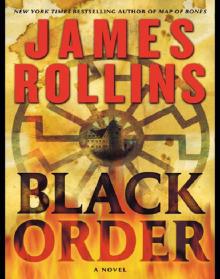 Black Order
Black Order Sandstorm
Sandstorm Ghost Ship
Ghost Ship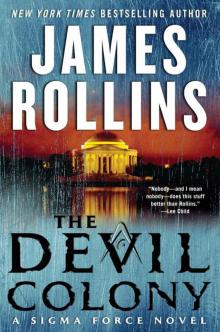 The Devil Colony
The Devil Colony Subterranean
Subterranean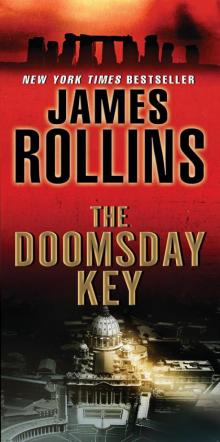 The Doomsday Key
The Doomsday Key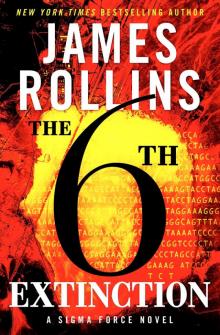 The 6th Extinction
The 6th Extinction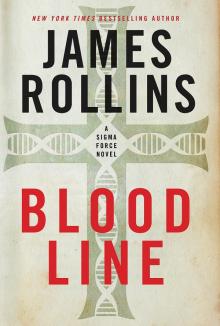 Bloodline
Bloodline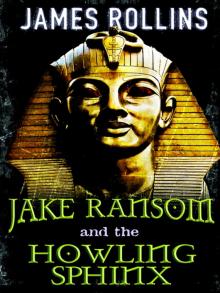 Jake Ransom and the Howling Sphinx
Jake Ransom and the Howling Sphinx The Midnight Watch
The Midnight Watch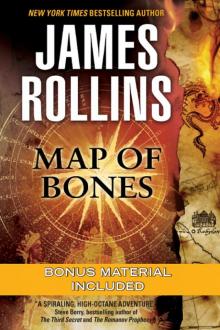 Map of Bones
Map of Bones The Demon Crown
The Demon Crown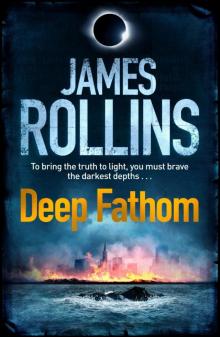 Deep Fathom
Deep Fathom Sigma Guide
Sigma Guide Kowalski's in Love
Kowalski's in Love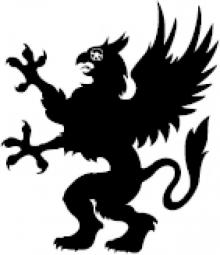 Jake Ransom and the Skull King's Shadow
Jake Ransom and the Skull King's Shadow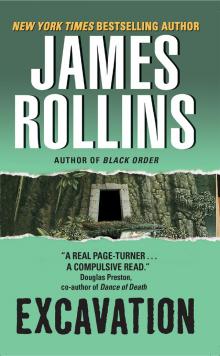 Excavation
Excavation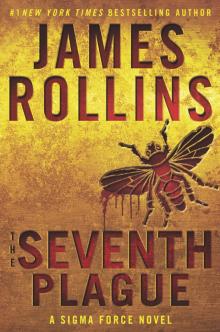 The Seventh Plague
The Seventh Plague Altar of Eden
Altar of Eden Unrestricted Access: New and Classic Short Fiction
Unrestricted Access: New and Classic Short Fiction Indiana Jones and the Kingdom of the Crystal Skull
Indiana Jones and the Kingdom of the Crystal Skull Crucible
Crucible The Eye of God
The Eye of God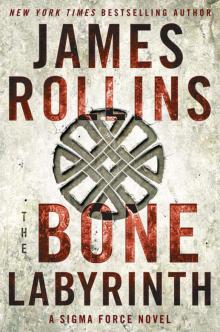 The Bone Labyrinth
The Bone Labyrinth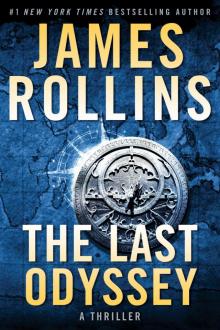 The Last Odyssey: A Thriller
The Last Odyssey: A Thriller Unrestricted Access
Unrestricted Access Amazonia
Amazonia Blood Brothers: A Short Story Exclusive
Blood Brothers: A Short Story Exclusive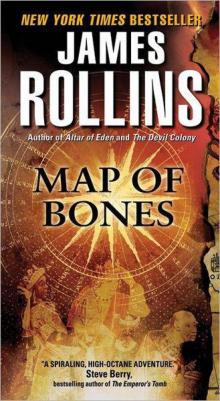 Map of Bones: A Sigma Force Novel
Map of Bones: A Sigma Force Novel The Skeleton Key (sigma force)
The Skeleton Key (sigma force)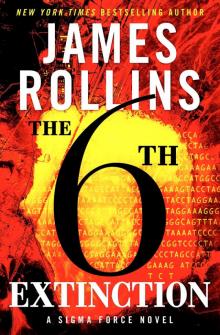 Sigma Force 10 - The Sixth Extinction
Sigma Force 10 - The Sixth Extinction Innocent Blood
Innocent Blood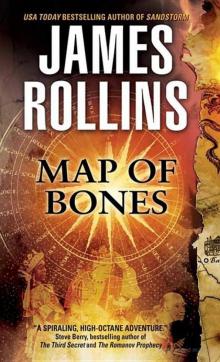 Map of Bones sf-2
Map of Bones sf-2 The Eye of God: A Sigma Force Novel
The Eye of God: A Sigma Force Novel The Eye of God: A Sigma Force Novel sf-9
The Eye of God: A Sigma Force Novel sf-9 The Pit
The Pit Indiana Jones and the The Kingdom Of The Crystal Skull
Indiana Jones and the The Kingdom Of The Crystal Skull The Last Oracle (2008) sf-5
The Last Oracle (2008) sf-5 City of Screams
City of Screams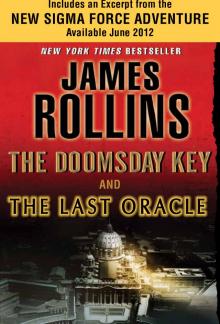 The Doomsday Key and The Last Oracle with Bonus Excerpts
The Doomsday Key and The Last Oracle with Bonus Excerpts The Judas Strain sf-4
The Judas Strain sf-4 Blood Infernal
Blood Infernal The Demon Crown: A Sigma Force Novel
The Demon Crown: A Sigma Force Novel War Hawk: A Tucker Wayne Novel
War Hawk: A Tucker Wayne Novel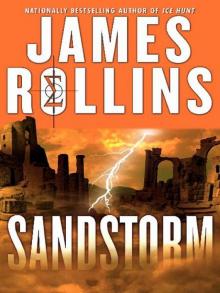 SANDSTORM sf-1
SANDSTORM sf-1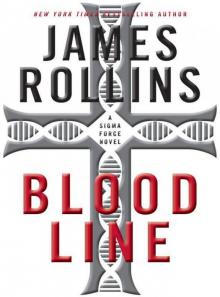 Bloodline: A Sigma Force Novel
Bloodline: A Sigma Force Novel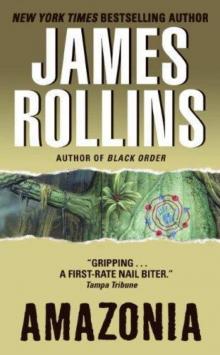 Amazonia: a novel
Amazonia: a novel The Last Oracle: A Sigma Force Novel
The Last Oracle: A Sigma Force Novel City of Screams (the order of the sanguines)
City of Screams (the order of the sanguines) Ghost Ship: A Sigma Force Short Story
Ghost Ship: A Sigma Force Short Story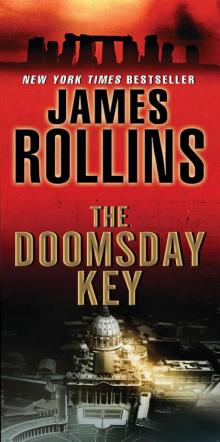 The Doomsday Key: A Sigma Force Novel
The Doomsday Key: A Sigma Force Novel